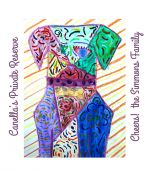by Ben Hilzinger
No one likes being judged. No one likes pouring their heart and soul into a unique creation only to have it be objectively scrutinized. That being said, its impossible to avoid all judgement and sometimes it can even help you grow as an individual or artist. When it comes to wine, hearing the reception and comments about your own juice is a needed part of the winemaking process that should be relished and appreciated. There are, however, two sides to every coin and when pleasing others trumps the creative process, outcomes tend to fall short.
These days, one can’t hear “wine” and “critic” without immediately thinking of the now imfamous Robert Parker Jr. Born in Baltimore, Maryland in 1947, Parker fell in love with wine after a visit to the Alsace wine region and by the age of 28 began writing a wine guidebook that eventually morphed into the world-famous The Wine Advocate. One of the most controversial yet influential critiquing devices is his 100-point rating system with grading factors ranging from color to aroma to flavor to overall finish. This system of scoring is the focus of my little rant.
The better the wine, the better the score. Sounds simple enough right? Wrong. Wine should never be seen as an objective product. I don’t mean to get all artsy on you, but its true. Critiquing wine in such a black and white manner seems so stifling. Every year, winemakers anxiously await the revealing of Robert’s view on their wines. Scores can hugely dictate price-points, marketing dollars, and general morale within any camp.
Sadly, through the years, winemakers have slowly stopped crafting unique, personal wines and started producing wines that will specifically please the all-powerful judges. After figuring out what each critic likes, winemakers know that to get the best scores, they need to shift their style to fit the bill. This is a horrible domino effect. All this does is allow more and more wines to be produced with the same flavor profile. There’s no freedom in making wine in mass numbers anymore because the American consumer is so focused on these literally made-up numbers to dictate their purchases. Im not saying winemakers are simply jumping on the bandwagon to be hip or cool. Not at all. They need to adjust their wine accordingly or they won’t be able to pay the bills. Robert Parker, in an attempt to regain likeablity and defend his system recently wrote:
“Scores, however, do not reveal the important facts about a wine. The written commentary that accompanies the ratings is a better source of information regarding the wine’s style and personality, its relative quality vis-à-vis its peers, and its value and aging potential than any score could ever indicate.”
-Robert Parker Jr
The emphasis is not only felt with producers. After all, the target audience for these scores is, of course, the consumer. The pressure to enjoy and/or appreciate the wines which scored the highest is a ridiculously real stress. The better the score, the more “sophisticated” the wine and if a consumer cant appreciate the expert-approved juice, what does that say about their palate? I, of course, do not agree with this last statement, but many wine drinkers have formed their tastes around what they are supposed to like, and not what they actually enjoy.
Personal preference is all that really matters from a consumer’s perspective, but this is not how the industry works. My palate is not any BETTER than yours; I assure you. Wine is such a scary, mystical entity that it should never matter what other people think. In fact, my preferences tend to change on the daily and to think I could give a one-time score to a bottle of ever-changing wine makes me almost laugh out loud. We shouldn’t give these numbers or scores of “90+ whatever” such weight. They are simply subjective opinions made by a group of people who claim to know whats best for the industry. At the end of the day, our own personal palates are formed by years of drinking all the varietals we can get our hands on. Drink what you like, love what you drink.












0 Comments